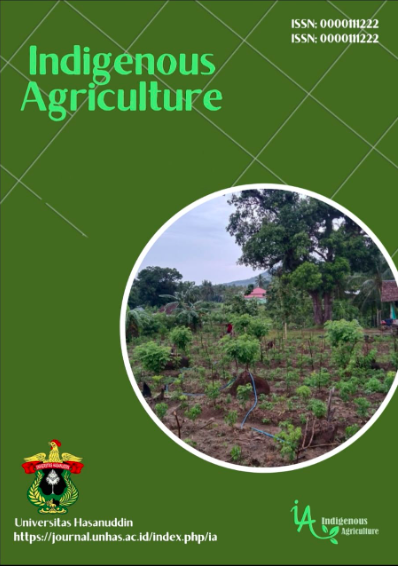Agroforestry: An Indigenous Farming toward Sustainability and Inclusive Market
Keywords:
Cocoa; inclusive market; institutional; smallholders,Abstract
The Agroforestry and intercropping farming systems are carried out by farmers in managing their cocoa cultivations due to limited land and the availability of commodities to support household needs. This system is maintained because it impacts increasing farmers’ income, maintaining local horticulture commodities and fulfilling the social needs of these commodities. This research uses a qualitative approach, with Focus Group Discussions involving farmers, NGOs, government, and other stakeholders. The results showed that agroforestry as an alternative to indigenous farming for cocoa farmers in Polewali Mandar Regency positively impacted farmer institutions, increasing income and meeting the needs of farmer households. The existence of farmer-NGO partnerships has helped change farmer institutions. Still, it has not altered local institutions that have become farmers' habits in managing farmland, including utilizing cocoa farms by intercropping. There has been a significant change on cocoa farmers from producing non-fermented cocoa to fermented and certified cocoa. Besides that, there is an increase in farmers' income by integrating cocoa - goats by utilizing shade trees in cocoa gardens as animal feed, producing organic fertilizers and pesticides from goat urine, and creating a market for inter-crop commodities such as cocoa, coconut, ginger, and locally grown fruits. all are in the same garden. Agroforestry as an alternative to indigenous farming must be maintained because it can increase farmers' income, also offers solutions to land degradation, and provides environmental services so it is expected to be able to guarantee sustainability and on the one hand, continue to support the achievement of an inclusive market for cocoa.


